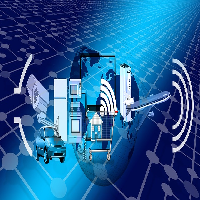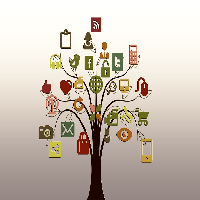
 Data Structure
Data Structure Networking
Networking RDBMS
RDBMS Operating System
Operating System Java
Java MS Excel
MS Excel iOS
iOS HTML
HTML CSS
CSS Android
Android Python
Python C Programming
C Programming C++
C++ C#
C# MongoDB
MongoDB MySQL
MySQL Javascript
Javascript PHP
PHP
- Selected Reading
- UPSC IAS Exams Notes
- Developer's Best Practices
- Questions and Answers
- Effective Resume Writing
- HR Interview Questions
- Computer Glossary
- Who is Who
Defining internet of things iot for businesses
In today’s world, the biggest technology trend is the ‘Internet of Things (IoT);’ and true enough it is defining our lives, the way we work; shaping and influencing businesses, and governments too. It is the ‘next big thing’ or is simply being termed as a revolution/progression of the web, and is being touted as far bigger than anyone has been able to fathom in technology, where machine to machine and man to machine interaction is moving towards new heights.
Guesstimates
It is estimated that by 2020 there will be around 26 billion devices (as per the firm Gartner) that will be connected to the internet, some predict a much larger figure (34 billion – 50 billion). Around $6 trillion will be spent on solutions driven by IoT in the next five years while the business investments will increase from 215 billion to 832 billion.
But why all the uproar now?In a webchat, according to Purvi Parekh, partner, Olswang, “It is because technology is outpacing us and we have to keep up. The biggest mistake a business can make right now is not to do anything at all. IoT is a natural evolution of smart technology, cloud, telecoms etc – all the things that we were already using, just all rolled into one.”

Use of IoT
IoT is simply the place where man/machine is connected to the internet. It implies an ecosystem where devices are connected including applications and services. Consumers connect to IoT through wearable devices such as smart watches, and fitness bands; Amazon Echo in Smart Homes, washing machines, and refrigerators, that can be monitored from laptop/phone, connected cars, headphones, lamps etc. come under the category of IoT. In the industrial sector, IoT is set to connect in the areas of transportation, manufacturing, and agriculture, aircraft’s engines etc. Governments will connect through increasing productivity, reducing costs and improving the lives of citizens through their ‘smart cities (removal of traffic congestion, pollution, crime, energy efficiency, waste management etc.). Again, as the connected networks grow, all of these will be able to collect and exchange data along the way using implanted sensors. Already, in healthcare, devices, and applications like Sonamba track the health of patients and AliveCor detects any abnormalities in the heart rhythms. Farmers too use connected sensors to boost crop production, monitor crops and keep track of the health of their cattle. Industries are able to track parts and observe and monitor crops.
So How is IoT Redefining Businesses?
Consumer data − With the advent of real-time data, companies are able to track and note the buying patterns of the customer. This enables companies to gauge on the usage of products and even shed a light on what might be required in future on a qualitative level. It will serve them in innovation of better and smarter products along with providing an insightful gain into an understanding of the customer’s preferences. For eg. Microsoft’s software collects data and provides the information on the features that are regularly used by users and which aren’t. It helps Microsoft in removing and adding the required ones at regular intervals.
Smarter Services and Products − The real-time data available will enhance the knowledge of the requirements of smarter products and services in the consumer world. Personalization of products will be easier and aid in building brand loyalty and equity. In the world with IoT, products would be smarter, more convenient to use, beneficial and connected.
Pace and Accessibility − With IoT, companies will be able to access data speedily and understand customer needs, while the consumer will be able to order the exact product required within a swift turnaround time indicating a shorter buying cycle. This will soon be feasible as buyers, vendors/suppliers and logistics will all be connected to IoT.
Operational Efficiency − Due to IoT, organizations will be able to reduce costs, and increase overall efficiency and productivity. There will be investments in new competencies and there will be explosions of innovative ideas with the aid of advanced technologies. Inventory tracking and its management will be easier and quicker with scanners, sensors and other smart devices freeing up people who can be involved in other cognitively arduous tasks. And if the business does not involve any inventory management, remote working could be a solution for all employees who will be able to connect via IoT leading to enhanced productivity.

Business models − Eventually, the models of businesses may be required to change rapidly. For eg. Fitness trackers like Fitbit track real-time data (health statistics), and share these and fitness habits with partners who can then invent or modify devices according to requirements thereby changing the marketing game altogether. This will also lead to expansion in new markets with the addition of new products.
Influence on IoT on Small businesses
IoT will certainly change the way we live and work with us and devices being connected, and it will create a profound impact on businesses, small and big alike. 57% of small businesses have begun to feel the impact of IoT. For eg. companies such as August which make smart locks can sell to large organizations along with cameras connected to monitor activity constantly thereby avoiding the need for security guards. Smart Fleet Trackers can keep track of products shipped so the customer has complete knowledge of when the product will arrive. IoT is already aiding in other devices such as mobile credit card readers and smart bins that inform collectors of which are filled to be collected and which aren’t (eg. Bigbelly, US) thereby reducing time and increasing efficiencies. Small and big businesses must leverage on devices connected to IoT.
Iot will give rise to data analysis, smarter management decisions, enhanced organizational functioning, speedier tasks and greater precision in services and products, eventually expanding businesses. Integration of devices will require experts thereby creating jobs too. Companies must visualize the need to seize the opportunities fast for greater financial benefits. These benefits will eventually be in all fields including healthcare, finance, utilities and finally entire cities, in due course affecting the entire world.

